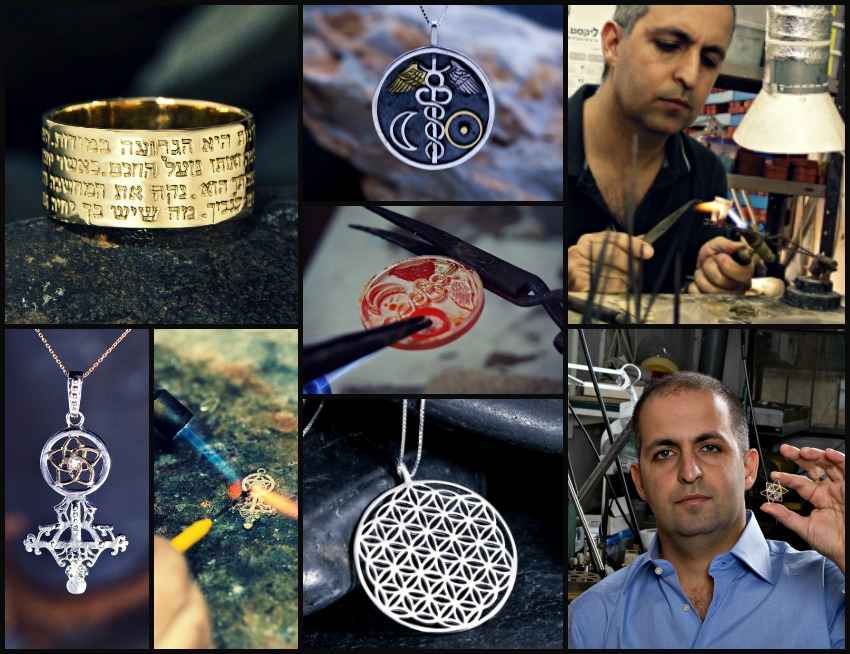A few months ago, I spent a few days in the Arava, the
south region of Israel, in the desert. One of my favourite
places with beautiful scenery, transcendental vibes,
silence, endless dunes, rocky planes, and ancient desert
acacia trees. At the Ein Gedi reserve, a lovely oasis, I
saw the ruins of an ancient synagogue.
One of the artifacts discovered during the excavations was an ancient mosaic from the 3rd century that warned against those who would reveal the trading secrets of producing the rare Balsamum oil (Shemen Ha'afarsemon in Hebrew). This oil was a precious perfume that was produced only in the ancient kingdom of Judea and was traded throughout the vast Roman empire. The next day we went to see the ruins of the Moa fortress, also located in the Arava. Moa was an inn and stronghold that was part of the Nabataean Incense Route. The Incense Trade Route was an ancient network of trading routes that went throughout the ancient Mediterranean. It linked this region with the far east, Africa, the levant Arabia, India, and even China. Common commodities were spices, silk, precious stones, and also myrrh, Arabian frankincense, Somali frankincense, and Balsam oil, among others. These oils, herbs, and aromatic resins were the ingredients of the sacred sacrificial incense/offerings on the altar of incense during the time of the tabernacle and the first and second temple in Jerusalem. It is known as "Pitum Haketoret" - the blending/making of incense. 15% Discount
Until September 27th 2022
"Pitum Haketoret" was an important part of the work of the priesthood. The offering, as well as the temple itself, were not just symbolic. The proportions and the structure of the temple were made according to sacred proportions that were meant to bring the human psyche to experience a tiny portion of the heavens. The incense had the same effect and was meant to connect us to the higher realms/worlds. The sacred incense was first mentioned in the bible in the book of Exodus to be used in the wilderness/desert Tabernacle. The incense was made from eleven components (four were mentioned in the bible, and seven were mentioned in the Talmud). The incense and its formula were considered a powerful remedy. And over the ages, the formula itself became a sort of a protective talisman and a remedy for health success and protection. 15% Discount
Until September 27th 2022
Ancient traditions mention that a powerful remedy can be
made by making a scroll and writing the exact formula by a
“Sofer Stam” (a scriber of religious texts such as the
Torah) or even saying/reading the "Pitum Haketoret" every
day will act as a powerful remedy. The book of the Zohar
mentions eleven unique qualities of supernatural cures
associated with "Pitum Haketoret."Each one of these unique talismans contains a genuine scroll with the traditional accurate entire text of the incense offering formula written by a “Sofer Stam” (literally with a feather) using the exact Assyrian fonts of the Torah. The writing on the canister says "Pitum Haketoret" in ancient Hebrew. The task of writing this text takes a lot of time and effort because even if one letter is flawed, the entire scroll cannot be used, so it might take a few weeks to finish each talisman. Thank you for reading With Great Love David and Ka-Gold Team |
Email: [email protected]
US Phone: 1-888-215-6036
Calls are redirected to Israel. Time in Israel: 11:01
Phone: 052-7457224 ![]()
Mailing Address: Flowers of Life Jewels LTD P.O. box 633 Ha-Lamed Hei St. Givataim 5310601 Israel
Your message was sent successfully!
We will be in touch as soon as possible.
Something went wrong, try refreshing and submitting the form again.
Ka Gold Jewelry Features David Weitzman Spiritual Jewelry Artwork.
David's Jewelry harness the power of spiritual symbols and sacred geometry to bring those wearing them happiness, vitality, excitement and love. We invite you to join us on a journey full of Harmony, Beauty, ancient wisdom and symbolism.
